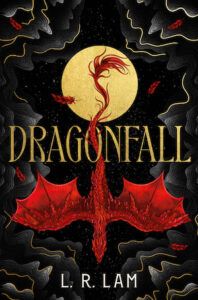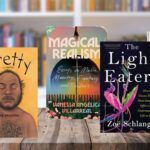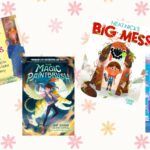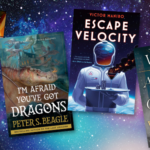
Ways School Libraries Can Make the Most out of ChatGPT
I want to start by saying I am by no means an expert on ChatGPT, I am, like many people, terrified of it in some ways but also interested in how I can use it at the same time. In the past few weeks, I’ve been using ChatGPT to assist me in the library. One reason is that being a librarian can be kind of lonely at times and something like ChatGPT can be a sort of lifeline to advice and even guidance. Before I start, and before you make a ChatGPT account and start plying it with questions and prompts, it is important to know that:
- Anything you ask it can be sent to law enforcement & other 3rd party vendors as per its privacy policy.
- Under 18s should not be engaging with this programme as per its terms of agreement.
- Anything you ask or tell it cannot be deleted.
- It has limited knowledge on topics after 2021 and therefore will make things up if asked.
- It is not connected to the internet (I don’t understand this either).
- If it doesn’t know something, it simply makes it up, much like humans do. Notoriously, it will create fake academic sources for bibliographies.
So, sounds fun, right? Who is ready to start?
I feel, at the moment, that ChatGPT can be used beneficially in the following ways:
Reader’s Advisory: Here’s an example, you can tell ChatGPT: “I really enjoyed Rules for Vampires by Alex Foulkes, what should I read next?” and it will provide a list of books that are related to that title. Of course, insert any other book/TV show/film. I think this has great potential for helping a librarian who is possibly harried or busy. Sure, it’s our job to know what similar books are out there, but being a librarian can be a very isolating position. This thing could possible act as a very, very basic library helper who can give you a list of books to recommend in the blink of an eye.
Display Creation: This relates to the point above, need to create a display? ChatGPT could throw together some ideas to create something eye-catching and attractive.
Quizzes: We use quizzes a lot in the library, it’s a good way to get students in or to celebrate an event. ChatGPT will create a quiz for you, however, as mentioned, it sometimes makes things up, so you need to check out the answers.
Writing Prompts: Someone said this to me about ChatGPT recently: it removes the anxiety that comes from staring at the blank page. I agree with this, it can provide limitless prompts and ideas for writing and being creative. Yes, it can go too far, yes, you can ask it to write a 10 page paper for you. This is where librarians come in if you ask me. We need to be the ones guiding students through the process, ensuring they are using it responsibly, even though technically they shouldn’t be using it at all (but probably are).
Explanatory Guide: What I like about ChatGPT is that it could potentially act as a guide to understanding complex issues or topics. Of course, don’t use current news topics as it will probably make it all up, but if you’re thinking about historical concepts and ideas, and your students are struggling, it might be a great tool.
I also want to use it with our older students on how to write something like a literature review or bibliography, even if it’s just to provide a good example.
Programme Development: Need an idea for a craft club, manga club, book club questions? It might save you an absolute ton of time. I run D&D a lot in my library, I’ve already asked it, for fun, to create a D&D campaign. That’s it, I wrote “write me a D&D campaign” and it created a five-point summary of what I should do to create an effective campaign. I was very impressed, I couldn’t find anywhere that it had copied and pasted it from the net. And the ideas were genuinely great.
Example Generator: I really recommend reading this article on the topic. Here’s an example, you can ask ChatGPT to provide you with info, like “Give me the life cycle of a star.”
It will provide you with the answer.
Now, you can say “Do the same thing, but give me the answers in the wrong order.”
It will also do this for you. So we can see the potential for learning is there but how heavily humans must be involved in the process.
I am not an expert, I am definitely still learning about this, but these are the ways I think ChatGPT can help. Yes, there is a lot of trepidation out there, but I think it is something that will exist whether we want it to or not.










